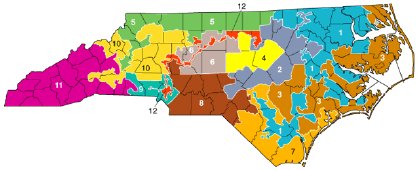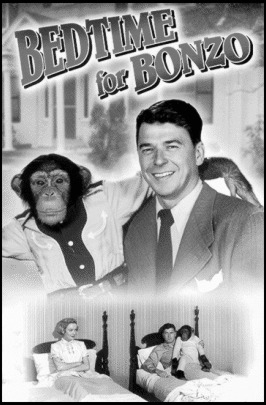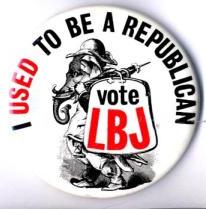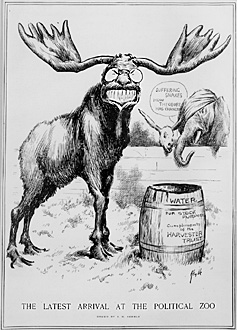Good morning from Harvat Hall at Iowa City Hall and a special thanks to Janelle Rettig and crew for saving my favorite chair. (My battery will last, but I prefer plugging in) It's the monthly League o Women Voters legislative forum.
Our cosponsor is the faculty senate. Our legislators (all D) are Sens. Bob Dvorsky, Joe Bolkcom and Becky Schmitz; Reps. Mary Mascher, Vicki Lensing, Dave Jacoby, Nate Willems.
Mascher: 2% allowable growth passed "Many were of the opinion that should be zero, but that would have sent a bad message" to districts. Stimulus money should help.
Other electeds I see here: Supervisors Rod Sullivan and Pat Harney, Patti Fields of the school board, Iowa City Mayor Regenia Bailey.
Willems: Prevailing wage "would have been biggest victory for Iowa working families in 30 years," on back burner and regrouping. Has a bill on changing city election hours from 7 AM to noon. (I'll need to check the details on that one)
Jacoby: The budget is very serious so I won't tell my usual joke here. People are really passionate about the driving with cell phone bills on both sides.
Lensing: We're stuck in the twilight zone of committees with the next funnel Friday the 13th. Pay equity, open meetings, wind energy tax credits. Atalissa investigation on hold pending the criminal investigation.
I don't see the junior high kids, which would be a first.
Dvorsky: Budget targets came out Thursday. Still trying to work out differences with the Guv. Notes May 5 sales tax vote.
Bolkcom: Senate first funnel on Thursday. Working on health care. Senate has passed his bike safety bill amid "contentious" debate. Predatory lending in subcommittee.
Larry Marek has arrived. So we have 8 of 10, missing only Kaufmann and Hahn. Marek was one of the Democratic nays on prevailing wage, and there are a lot of labor people here to greet him.
Bolkcom continues: a lot of energy bills and flood plain management.
Schmitz: Economic Growth has tweaked the film industry bill. Should be abl to hold the line on Medicaid, if not expand efforts.
Marek: Budget's tough. We're very limited on revenue. Vets bill that would expand forfeiture protection to reserve troops. Transportation: gas tax would raise revenue but slow economy. (Doesn't bring up the prevailing wage vote. I suspect someone else will.)
First question from league: payday loan caps. I bet Bolkcom takes this and yes he does. Bills are introduces capping at 36 to 150 percent. Current average is 350 percent States that have passed 36 percent have seen the industry leave the state and Iowa needs to decide if we want to do that. "I'm not convinced at this point that we should drive this industry out of the state but I might be convinced." Car title companies now largely out of state. Jacoby: payday loan will be a tougher fight than car title. Payday loans took your $ but car title people took your car too.
Marian Wilson Kimber of Univ. Profs asks about budget. Dvorsky: everyone on this panel is supportive of the regents institutions; should take their share of the cuts but not more than that. Notes Sally Mason turning down her raise. Bolkcom: we managed state finances poorly during last economic downturn (2000-04) while tuition skyrocketed, and we continued to cut taxes in that era. There's a lot of tax cut proposals now but virtually none to raise $. Need to figure out how to fund important public services. Schmitz: Legislators find it easier to give away $ than to collect it. "People say we have a spending problem but really it's a revenue problem." Jacoby: The regents took a cut before the cut hit, in the last two years. Mascher: as much as $600 million in tax credits with little accountability as to if they work. They should all be sunset in 2 years and then you make the case for keeping them. I hupe UI does not hire more adjuncts. They fill a hole but are not there for the long term and that hurts quality.
Dave Redlawsk, wearing a faculty senate hat: faculty understands the budget challenge. Flood is still a major issue for UI. Not just physical buildings; hard to recruit students without the facilities esp. music and art. I agree with Mascher on the adjuncts, but that's different than grad student/TAs. UI has impact on whole state.
Dvorsky: It's the University of Iowa, not the University of Iowa City. UI has dealt with flood commendably. Some west campus bildings will be replaced others wont. (Aside: I've heard as long as 2 years on Hancher.)
Room is standing room only even without the junior high.
Dvorsky: Sales tax vote will be important, we need to make sure we have enough funds here. "I hope people support that. I don't think there's really any other funding source." "I had hoped it would have been five years but we couldn't get that through the Board of Supervisors."
Pat Harney: Please look at the roads the states turned over to counties a few years back. "We have to address those costs." Road costs are becoming prohibitive, and there's not a fair cost share. Jacoby: We're woking on an antiquated road tax formula and we need to change that to reflect population and revenue shifts before we raise gas tax. Lensing and Marek note gas price disparities across state. Dvorsky: levels of govt. worked together so well on flood, now less so; notes again that Iowa City wanted 5 years on sales tax but BOS voted for four.
Peter Fisher: state budget and federal stimulus. Talk me down here (he must be a Maddow fan. SEIU's Sarah Swisher is next in line.) Mascher: if stimulus money is a one time thing we create a hole for 2012. The stimulus money is for a 27 month period. Jacoby: state still needs to learn which fed. strings are attached. Some people were looking at negative allowable growth. Dvorsky: "I have great faith in President Obama and the stimulus. If Gov. Jindal doesn't want the stimulus money in Louisiana we'll take it here."
Swisher: "Every one of these issues can be aided by a strong organized labor movement in Iowa." Atalissa: "If there had been a strong labor movement at West Liberty, and the union there was defeated twice, this would not have happened." Do you have a moral obligation to support labor? Jacoby: "I think fair share is fair but I don't think we have the votes in the House. I think prevailing wage certainly would have raised the 44 cents an hour those people (in Atalissa) were getting." Dvorsky: By not having prevailing wage, we drive down wages (applause). We need prevailing wage AND fair share. (more applause). Bolkcom: income disparity is a esult of long-term anti-labor policy in thsi country. Tax code, too. "We have some modest labor proposals, really worker proposals, that we can't seem to move." Schmitz: very disappointed in vote last weekend.
Last in line, by chance, is Marek: "I know I disappointed many here today. But the people I live with have concerns about this, including many small contractors." Concerns about immigration status. "I can see where labor's coming from, but I've got to represent the views of people who voted for me." Murmurs in audience, but folloups are directed to end of line.
Bob Oppliger: bike bill in House. Jacoby: some house members concerned that there also be rules on the biker side. Bolkcom: it got partisan in Senate. When drivers don't follow rules, we don't see the same indignation we see directed at bikers.
Paul McAndrew: workers comp bill. Willems: I support some sort of doctor choice bill, hope we can get a bill. But it's very hard to get 51 in House. There is a connection between doc choice bill and prevailing wage. Bills getting watered down. Lensing: Labor needs to educate both public and legislators. Some of our colleagues on both sides don't understand. "Our vision of labor is back in the 40s."
Jason Norris of Carpenter's Union: UI gets millions of tax dollars, but current practice depresses wages because bid drive down wages. Need responsible bidder criteria on wages, health care, retirement. Small contractors aren't competing on big state bids, and wages get returned to communities.
Marek: some of these local contractors do school projects. "I admit I don't understand labor as well as some of you do. There needs to be more communication with areas that are more conservative like mine." Local contractors are using good, legal labor "and they just do not want to go that direction, and until they are educated it is very hard for me to go that direction. I have to listen to what they say and I was very hesident to be the vote that made the difference." Mascher to Marek: every state that had prevailing wage has better worker safety. Jacoby: we saw over 100 full time construction workers treated at UIHC on Medicaid because they were uninsured. This bill had big support from young people.
Royce Peterson, another carpenter: How can I help Larry educate his constituents? What amendments would change your vote? Marek: the people in my area just don't want to see it happen. Contractors say their employees are happy. Mentions illegals again. Schmitz: I've been trying to educate people (her district overlaps Marek's). Prevailing wage helps apprenticeships.
Bill Gerhard, construction trades: Iowa's one of 8 states that have never had prevailing wage, notes apprenticeship again and safety. Prevailing wage does not increase costs; increased safety and productivity offsets wage costs. "This is bigger than a half dozen small contractors in Washington county." "The people in this room, Johnson County, carried you in the election, and we want to have you carry our water in the state house."
Nancy Porter, Iowa City teacher: collective bargaining and open scope. Mascher: Working with Guv on drafting the language. "You're going to see a different kind of partnership than last year"; we don't want another veto. "It's open-ING the scope, it's not total open scope" and bill will likely be more narrow. Dvorsky:discipline/discharge still an issue. Marek: "We need our local schools to have authority, and I'm going to have to see the details."
Mental health parity. Schmitz: working on gathering support. Working in house first, senate likely to approve. Willems: Still hard to get to 51; the same people who were on the fence on labor will be the ones on the fence here.
Just one student; cancellation of school ski trip. Mascher: this was a local decision; district decided they couldn't justify it as an academic thing (though some would say it would qualify as PE). Jacoby: an unintended consequence of No Child Left Behind.
Gender equity on commissions. Lensing hopes to get it out of committee next week with one small amendment.
Brian Flaherty notes Democratic platform in support of Fair Share. And that's the end of the show.
 The system's administrator or root user has more magical powers than all these wizards put together. Voldemort can't get to my stuff, unless he has my password. (Most hackers are unable to obtain the root password by use of Cruciatus, Imperius, or other Dark Arts, so it's not yet considered a major Linux security flaw.) But let's check in on him:
The system's administrator or root user has more magical powers than all these wizards put together. Voldemort can't get to my stuff, unless he has my password. (Most hackers are unable to obtain the root password by use of Cruciatus, Imperius, or other Dark Arts, so it's not yet considered a major Linux security flaw.) But let's check in on him:

 But the deck was about to shuffle wildly in 1992 and 1994. The next key phase of our transition to parliamentary style party discipline in Congress, defined ideologically, was the Gingrich Era.
But the deck was about to shuffle wildly in 1992 and 1994. The next key phase of our transition to parliamentary style party discipline in Congress, defined ideologically, was the Gingrich Era. 1980s court rulings required the creation of majority-minority districts wherever possible, and computerized matting technology had made gerrymandering easier. Eight southern states created new first black majority districts, and sent new black representatives to Congress--the first since Reconstruction in most states. The districts were works of modern art -- the "Melting Z" for Cleo Fields of Louisiana, the "I-85" North Carolina district of Mel Watt (connecting the black neighborhoods of several metro areas by a corridor that got as narrow as a median strip), and the "squashed headphone" district in Chicago, which connected two Hispanic areas by a strip of parks and cemeteries.
1980s court rulings required the creation of majority-minority districts wherever possible, and computerized matting technology had made gerrymandering easier. Eight southern states created new first black majority districts, and sent new black representatives to Congress--the first since Reconstruction in most states. The districts were works of modern art -- the "Melting Z" for Cleo Fields of Louisiana, the "I-85" North Carolina district of Mel Watt (connecting the black neighborhoods of several metro areas by a corridor that got as narrow as a median strip), and the "squashed headphone" district in Chicago, which connected two Hispanic areas by a strip of parks and cemeteries. As the Carter Administration dawned, it seemed that the momentum had stalled. 1974 was the Watergate backlash, and in 1976, regional pride in Jimmy Carter overcame the long-term trend to the GOP. It even seemed that within the Republican Party, after a hard-fought convention, conservatism was on the decline.
As the Carter Administration dawned, it seemed that the momentum had stalled. 1974 was the Watergate backlash, and in 1976, regional pride in Jimmy Carter overcame the long-term trend to the GOP. It even seemed that within the Republican Party, after a hard-fought convention, conservatism was on the decline. 1980 was the beginning of the era of the "Republican lock" on the Electoral College; the math supposedly indicated that so many states were so securely and permanently Republican, like California and New Jersey, that no Democrat could ever get to 270.
1980 was the beginning of the era of the "Republican lock" on the Electoral College; the math supposedly indicated that so many states were so securely and permanently Republican, like California and New Jersey, that no Democrat could ever get to 270. The 1964 landslide was really two separate elections: a Johnson landslide in the Union and a Goldwater landslide in the Confederacy. It was only close in a handful of border and Western states. Goldwater swept in five House Republicans from Alabama, one from Georgia, and the only one who ran in Mississippi. (Few of them lasted; several of them overplayed their hands and ran unsuccessfully for higher office a little too soon in 1966.)
The 1964 landslide was really two separate elections: a Johnson landslide in the Union and a Goldwater landslide in the Confederacy. It was only close in a handful of border and Western states. Goldwater swept in five House Republicans from Alabama, one from Georgia, and the only one who ran in Mississippi. (Few of them lasted; several of them overplayed their hands and ran unsuccessfully for higher office a little too soon in 1966.) It almost did. The Progressives left the Republicans in both 1912 and 1924, and in an alternate history one of those splits could have realigned the system. But those candidacies were driven as much by personality as ideology, and the deaths of Teddy Roosevelt and Fightin' Bob LaFollette made the first two Progressive Parties dead ends. Republicans also learned their lesson from the divide-and-conquer politics of the 1912 Roosevelt-Taft split, when Democrats made big House gains and took control of the Senate while Wilson was winning with only 41% of the vote.
It almost did. The Progressives left the Republicans in both 1912 and 1924, and in an alternate history one of those splits could have realigned the system. But those candidacies were driven as much by personality as ideology, and the deaths of Teddy Roosevelt and Fightin' Bob LaFollette made the first two Progressive Parties dead ends. Republicans also learned their lesson from the divide-and-conquer politics of the 1912 Roosevelt-Taft split, when Democrats made big House gains and took control of the Senate while Wilson was winning with only 41% of the vote. Humphrey helped bring about the first big revolt of Southern segregationists at the 1948 Democratic convention, as his civil rights plank led to Strom Thurmond's candidacy (a precursor to the next chapter in our story). But the Dixiecrats weren't the first Southern electoral revolt. An anti-New Deal slate of "
Humphrey helped bring about the first big revolt of Southern segregationists at the 1948 Democratic convention, as his civil rights plank led to Strom Thurmond's candidacy (a precursor to the next chapter in our story). But the Dixiecrats weren't the first Southern electoral revolt. An anti-New Deal slate of " They'll be making those dollars three times longer than Tippecanoe and Tyler Too was president. Which is why it surprised me that
They'll be making those dollars three times longer than Tippecanoe and Tyler Too was president. Which is why it surprised me that  We've all learned how to install Windows software. You either buy an expensive CD or you go out to the web to find and download a file. Either way, you follow the prompts, wait, wait some more, and then usually get prompted to reboot.
We've all learned how to install Windows software. You either buy an expensive CD or you go out to the web to find and download a file. Either way, you follow the prompts, wait, wait some more, and then usually get prompted to reboot. In Ubuntu, the package manager is called
In Ubuntu, the package manager is called 